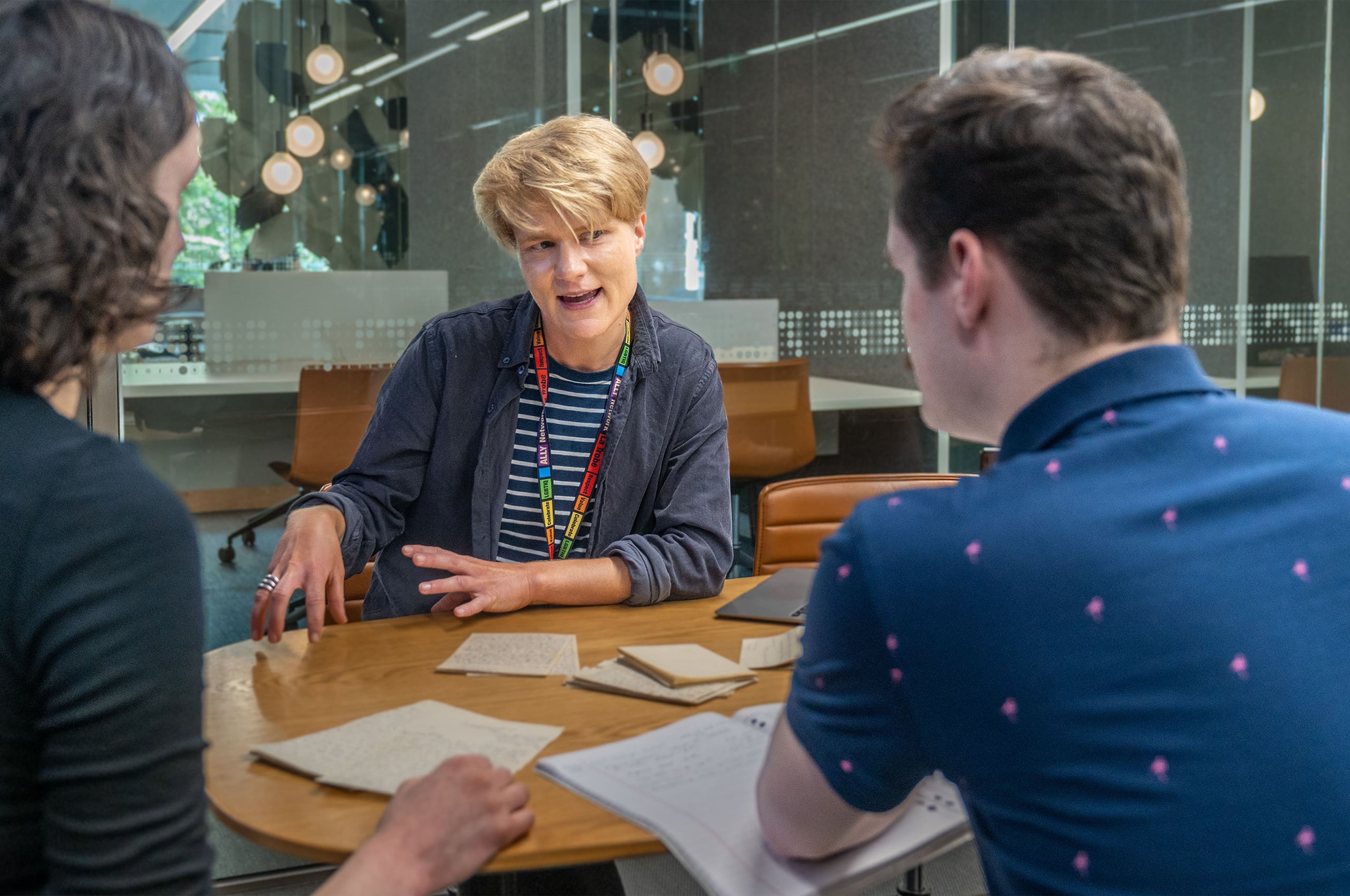Study with the Department of Archaeology and History

The Department of Archaeology and History offers degrees and majors at La Trobe University’s Melbourne and regional campuses.
We give students the confidence and ability to grapple with complex questions, armed with the knowledge of how the past has shaped – and continues to shape – global, national, and local relationships between societies and people.
As well as sharing our passion about the past, we provide hands-on training, where students acquire transferrable skills in the archive, laboratory, field and in public history.
Courses
Supportive learning
We offer a dynamic, engaged and supportive learning environment. We have a commitment to decolonising our curriculum and respecting the knowledges and perspectives of other cultures.
We are passionate about sharing our knowledge with students, and committed to giving them a great education and a gateway to a rich life beyond university.
Students have ready access to staff, and our Archaeology program has outstanding teaching laboratories and facilities. Students can also engage with the past in our Digital Humanities Lab, or learn from experienced media commentators on how to build a profile as a public historian.
Our Department has one of the largest postgraduate communities in the School of Humanities and Social Sciences. Undergraduate students can engage with each other in the La Trobe Archaeology Students Society or through one of the University’s other student associations.
We have a staff presence at La Trobe's regional campuses in Bendigo and Albury-Wodonga, and value the perspectives and connections of our regional students.
Workplace experience
Our students have opportunities to participate in field schools and study tours in Australia and abroad.
Our programs have longstanding connections to the heritage and museum sector, which provide placement opportunities for both undergraduate and postgraduate students.
A global perspective
Our Department is engaged with research across the globe, and our students have the chance to learn about the rich pasts of many countries.
We encourage students to think about how our world has been shaped across time and how that enables us to understand the political, social and environmental issues we face today.
Our international partnerships and opportunities add to the richness of our education programs, as well as the staff and student experience. Many of our staff work with researchers in Asia, North America and Europe on projects of mutual interest. We are also engaged in ongoing work with many First Nations communities in Australia and elsewhere.
Our students have opportunities to undertake overseas fieldwork or study trips, adding to their learning and personal development.
Find out more about our exchange programs.
